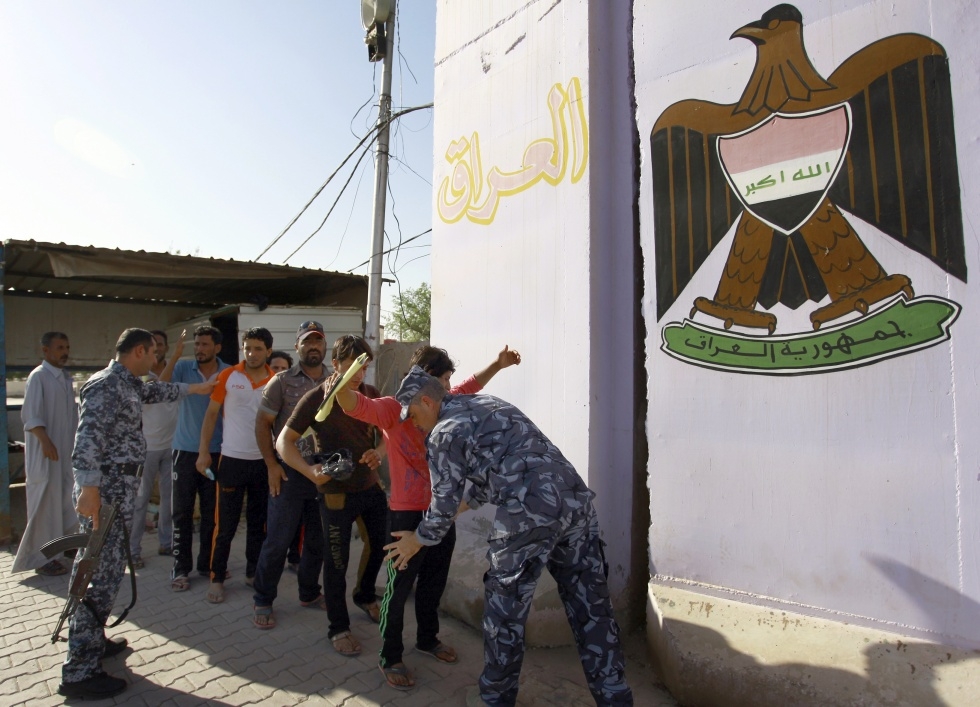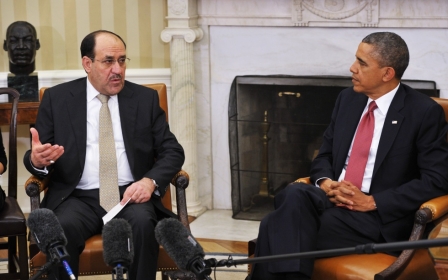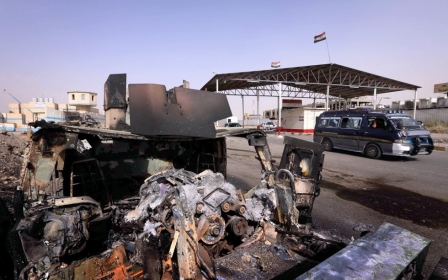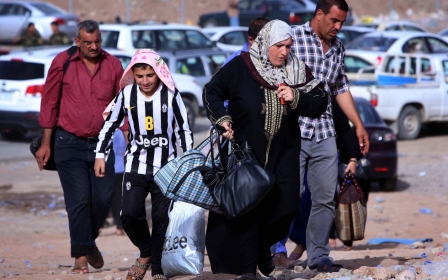UN calls for urgent 'all-inclusive' dialogue in Iraq

The UN Security Council on Thursday demanded urgent inclusive dialogue in Iraq and condemned "terrorist" activities, but stopped short of mulling action against militants advancing on Baghdad.
The Council met for two hours behind closed doors as Kurds captured the contested oil city of Kirkuk and the United States contemplated air strikes to bolster Iraq's collapsing army.
The 15 members expressed unanimous support for the government and people of Iraq in their fight against terrorism and called for broad-based dialogue, said rotating president Russia.
"This is a great opportunity for a fresh start in having an all-inclusive political dialogue and also in resolving the multitude of issues," Russian ambassador Vitaly Churkin said.
"There must be a strong and intensified effort to start this dialogue," he added, after Iraqi MPs failed to show up to authorize the prime minister's request for a state of emergency.
Security Council members urged the Iraqi government and the international community to support the UN mission on the ground, especially in response to the humanitarian crisis, Churkin said.
He said members condemned "all terrorist and extremist activities" but warned that Iraq had to address much deeper and more complex political, sectarian, social and oil disputes.
"The more immediate thing is to reach some kind of accommodation between the main political forces to make it easier for them all to fight the terrorists," he added.
French ambassador Gerard Araud agreed, saying on Twitter: "Iraqi crisis has an essential political dimension. Need for Bagdad (sic) to respond to the concerns of the Sunnis and to outreach to the Kurds."
Although militants have swept south from the northern city of Mosul to Saddam Hussein's hometown of Tikrit, Churkin said the UN envoy to Iraq, Nickolay Mladenov, did not see an immediate danger of the violence spreading to Baghdad.
Diplomats said Mladenov briefed by video link that the UN mission had only a "very limited" ability to respond to the humanitarian needs of more than 500,000 displaced from Mosul.
He described the crisis as the biggest threat to Iraqi sovereignty for some time, they added.
What can the Security Council do?
But it is unclear what the Security Council can actually do.
Asked whether it was contemplating action or measures against ISIL, Churkin said no suggestions to that effect had been made.
So far the UN mission in Iraq, headed by the former Bulgarian foreign minister Mladenov, has focused on helping the government with political reconciliation efforts and elections.
Churkin said the Council may look closer to the time as whether it needs to adjust the mandate of the mission when it comes up for renewal at the end of July.
"Clearly, the war on terrorism is not over," Churkin told reporters.
US President Barack Obama said Thursday that Washington was "looking at all the options," but Churkin refused to comment on any future potential actions by specific countries.
The US has poured more than $25 billion into training and equipping the Iraqi army since 2003, and even State Department spokeswoman Jen Psaki admitted there had been "a clear structural breakdown" among the security forces.
A demand for an additional $1 billion of US military aid to Iraq, including aircraft and some 200 Humvees, is already before US lawmakers.
Both the US intelligence services and the Iraqi authorities were caught "flat-footed," Michael Rubin of the American Enterprise Institute told AFP, adding that "no one saw this insurgency coming with the speed that it did."
The easiest option now facing Obama is to send in military advisors "to help the Iraqi army to do better with what they have. That's the least problematic," said retired major general Paul Eaton from the National Security Network think-tank.
Many of the ISIL fighters, who split from Al-Qaeda last year, have been trained in arms and warfare in Syria and US lawmakers Thursday put the blame squarely on the administration's lack of a regional strategy.
Hawkish Republican Senator John McCain called for "drastic measures" to reverse the sweep by the Sunni militants.
Oil prices rally to 9-month highs on Iraq violence
Oil prices leaped to their highest level in nearly nine months Thursday on rising concerns that turmoil in Iraq will disrupt Middle East supplies.
US benchmark West Texas Intermediate for delivery in July jumped $2.13 compared with Wednesday's close to $106.53 a barrel, the highest level since September 18, 2013.
European benchmark Brent crude for July delivery rallied $3.07 to $113.02 a barrel on London's Intercontinental Exchange.
"Obviously the market is concerned that there could a potential for shutoff of production," said Andy Lebow, trader and braker at Jefferies Bache.
Lebow said the oil market is already dealing with a major outage to production in Libya.
"No question that should we lose any Iraqi production, that would be serious," he said.
Iraq is the second-largest crude producer in the OPEC cartel after Saudi Arabia, pumping an average of about 3.5 million barrels a day. It boasts the fifth-largest proven crude oil reserves in the world.
On Wednesday, the Organization of Petroleum Exporting Countries, meeting in Vienna, maintained its crude output ceiling where it has been since late 2011. Saudi Oil Minister Ali al-Naimi expressed satisfaction with a relatively stable oil market.
A note by Eurasia Group said in spite of Iraq's upheaval, risks in the oil market are "primarily to the downside," given weak Chinese demand for oil products and signs of a political realignment under way in Libya which could allow the North African country to return to substantial volumes of crude exports.
The chance the Iraqi strife could significantly "undermine operations within the relatively small geographic footprint where the bulk of Iraq's current oil production takes place" in southern Iraq is "minimal," Eurasia Group said.
Middle East Eye propose une couverture et une analyse indépendantes et incomparables du Moyen-Orient, de l’Afrique du Nord et d’autres régions du monde. Pour en savoir plus sur la reprise de ce contenu et les frais qui s’appliquent, veuillez remplir ce formulaire [en anglais]. Pour en savoir plus sur MEE, cliquez ici [en anglais].




